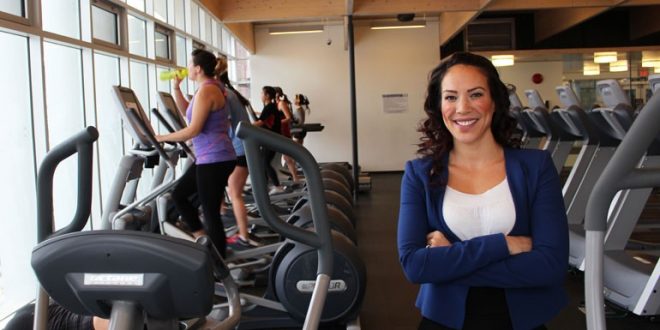With world diabetes day just around the corner on November 14, UBC Okanagan associate professor Mary Jung wants to help those living with type 2 diabetes or prediabetes create, and more importantly, maintain healthy habits.
The developer and researcher has devoted her research career to investigating what makes healthy habits stick. Her laboratory at UBC’s Okanagan campus —while petri dish and beaker-free— has been home to multiple studies that sought to identify how to make lasting dietary and exercise changes. The result: Small Steps for Big Changes, a three-week personalized diet and exercise lifestyle counselling program for individuals at risk of type 2 diabetes.
With the help of a private BC foundation, Michael Smith Foundation for Health Research, and the Canadian Institutes of Health Research, Small Steps for Big Changes is now available to the Okanagan community at the Kelowna Downtown YMCA.
Developed in 2012 with an initial group of 32 participants with prediabetes, the personalized, one-on-one, training and counselling program showed promising results. Fast forward to 2016, and once again, the program has proven to result in long-lasting positive lifestyle changes for its 100 participants at risk of developing type 2 diabetes.
The YMCA UBC collaboration represents a unique form of research in action. While typically health research experiences a 7-year delay from study to practice, the YMCA-based lab offers the cost-free, accessible program while continuing to gather evidence for wider adoption.
“This pilot represents an opportunity for continuing to build evidence of the program’s success, while putting the time-efficient, effective program directly in the hands of people who can use it,” says Jung, who explains the vision for the program is to offer access across British Columbia, and beyond.
While adhering to a healthy diet and regular exercise have innumerable rewards for all populations, the program was developed with the intention of addressing the silent epidemic of prediabetes, which Diabetes Canada reports is expected to grow to 23 per cent of the Canadian population by 2025.
“The goal is to help prevent the development of type 2 diabetes in those at risk by providing a program that is accessible and cost free,” says Jung.
“Our aim is to help individuals at risk of developing type 2 diabetes to become independent exercisers and more devoted to a healthier diet. In the end, we want to enable positive, healthy and life-long changes to behaviour.”
YMCA of Okanagan was critical to moving the laboratory from campus to community. When Karlene Sewell, General Manager of Health Initiatives, learned of the program, it was a logical collaboration.
“YMCA of Okanagan is dedicated to building healthy communities,” says Sewell. “Small Steps for Big Changes represents YMCA’s pursuit of new programs and services that address the specific and unique needs in the communities we serve.”
The downtown community lab represents the first small step towards big changes for the YMCA and UBC partnership.
Agencies/Canadajournal
 Canada Journal – News of the World Articles and videos to bring you the biggest Canadian news stories from across the country every day
Canada Journal – News of the World Articles and videos to bring you the biggest Canadian news stories from across the country every day



